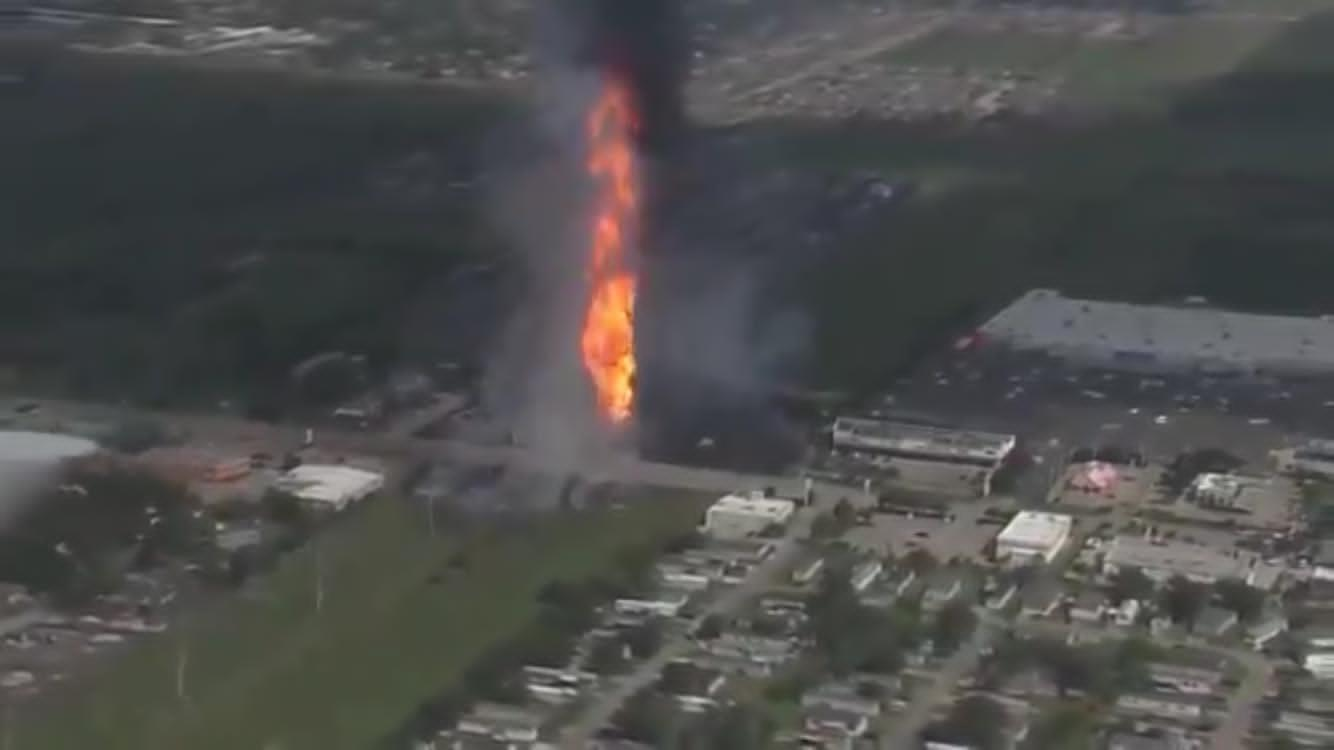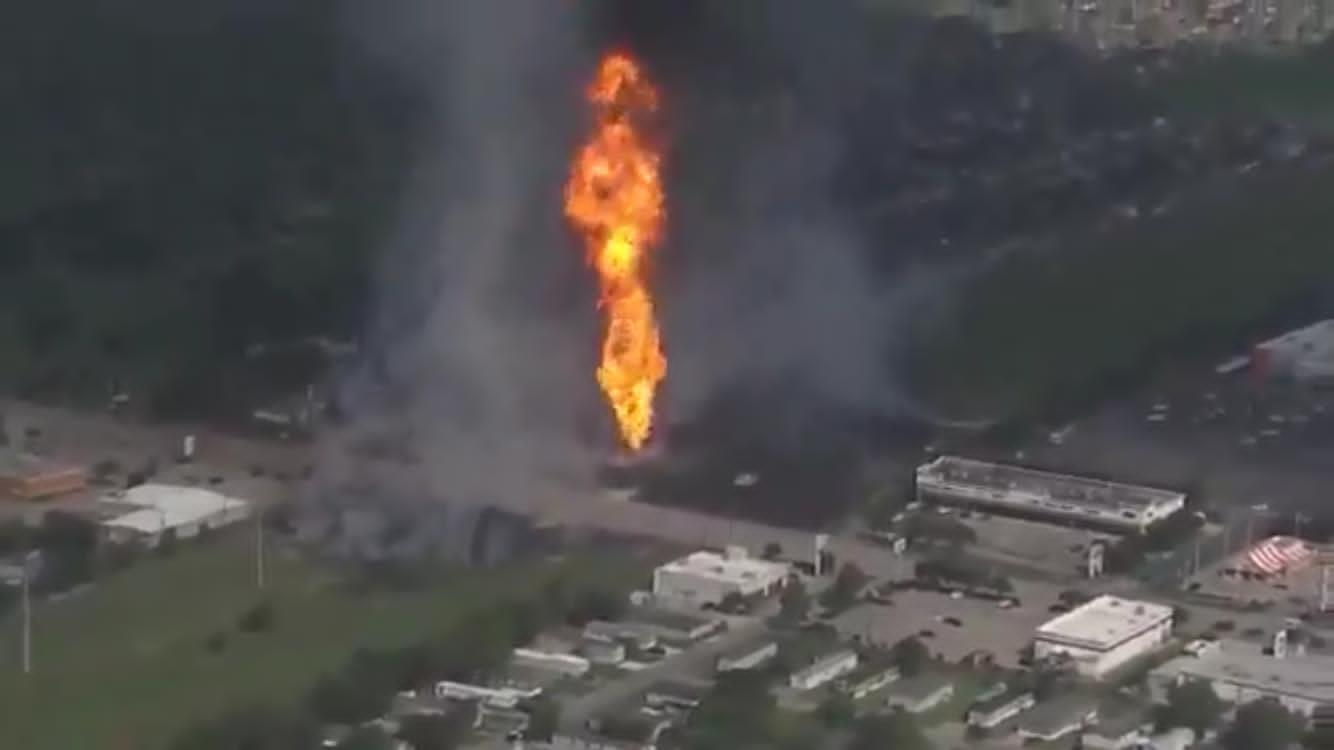In the early hours of September 16, 2024, the Houston metropolitan area was shaken by an event that would soon capture national attention:
a significant pipeline fire in Deer Park, Texas. This incident, sparked when a white SUV crashed into a pipeline valve, led to a fire that raged for hours, illuminating the night sky with a towering flame visible from miles away.

**The Incident:**
The fire began after the vehicle breached a fence and struck an above-ground valve connected to a natural gas liquids pipeline operated by Energy Transfer. This collision not only ignited the natural gas but also caused widespread damage, with flames reaching temperatures hot enough to melt vehicles and damage structures over a considerable radius. The immediate response involved shutting off the pipeline’s flow, but the sheer volume of gas already in the system meant the fire had to burn out naturally, a decision influenced by environmental considerations.
**Community Impact:**
The fire necessitated the evacuation of approximately 100 homes in the nearby Brookglen neighborhood. Residents, like Evan Wyman, faced the ordeal of leaving their pets behind, hoping for their rescue, as emergency services focused on preventing the fire from spreading. The incident also led to power outages affecting thousands, highlighting the interconnectedness of infrastructure in urban areas.
**Environmental and Health Concerns:**
Air quality was a significant concern, with the Texas Commission on Environmental Quality monitoring the situation closely. While initial assessments indicated that the smoke’s particulate matter was not an immediate health risk for healthy individuals, precautions were advised for those with respiratory issues. The environmental impact, however, extends beyond immediate air quality, raising questions about soil contamination and long-term health implications.
**Infrastructure and Safety Reflections:**
This incident has reignited discussions on the safety of pipelines, especially in densely populated areas like Houston, known as the energy capital of the U.S. The event underscores the potential dangers of urban sprawl encroaching on industrial zones. Experts like Ramanan Krishnamoorti from the University of Houston noted that while such fires are not major disruptors to supply chains, they prompt a thorough inspection of surrounding infrastructure for potential damage.
**Public Reaction and Media Coverage:**
The event was extensively covered on X, with users and news outlets providing real-time updates and visuals, showcasing the power of social media in disseminating information during crises. From firsthand accounts of the explosion sounding like a “bomb went off” to concerns over the adequacy of safety measures, the public discourse has been a mix of shock, curiosity, and critique.
**Looking Forward:**
The Deer Park pipeline fire serves as a stark reminder of the risks associated with energy infrastructure. As investigations continue into the cause and full extent of the damage, this incident might push forward discussions on pipeline safety, emergency response strategies, and urban planning in relation to hazardous facilities. For now, the community of Houston, particularly those directly affected, are left to recover, reflecting on an event that brought national focus to their doorstep.
This article, drawing from real-time updates and expert analyses, provides a comprehensive look at an event that will likely have lasting impacts on local communities, environmental policies, and infrastructural safety standards in the United States.







